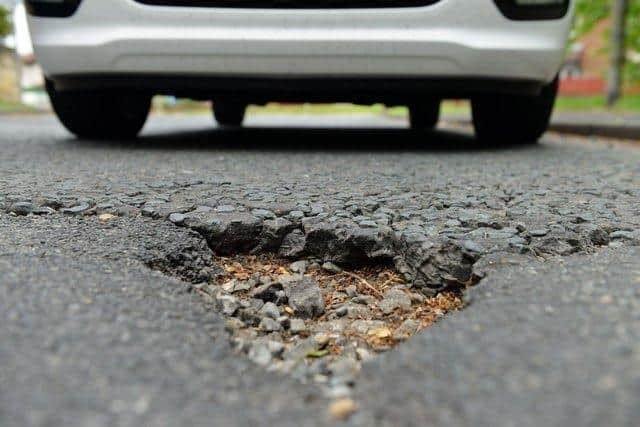Edinburgh roads and pavements: 'Biggest ever' investment to improve Edinburgh roads, including A1 and A90
and live on Freeview channel 276
A huge road resurfacing programme is soon to start across the Capital as the city council prepares to make its “biggest investment ever” in carriageway and footpath maintenance. Amid widespread complaints about the number of potholes in Edinburgh’s streets, transport convener Scott Arthur said the extra £11 million allocated to investment in roads and infrastructure this year – boosting the budget to £21m, up from £13m last year – would make a real difference to the condition of the roads.
He said: “It must be the biggest investment ever. It means a total of 484,000 square metres of roads and footpaths will get resurfaced. In every ward across the city, there will be at least a dozen streets where either the road or the footpath or both will be getting resurfaced. We've listened to residents on this and rather than take a piecemeal approach, the focus will be to go for a complete resurfacing of areas rather than make do and mend.”
Advertisement
Hide AdAdvertisement
Hide AdThe roads listed for strengthening or resurfacing include the A1, A8, A90, Commercial Street, Gilmerton Road, Morrison Street, Lanark Road, Niddrie Mains Road, Baird Road, Comely Bank Road, Pennywell Road and Old Dalkeith Road.


The council is currently trialling a JCB Pothole Pro machine – nicknamed the “pothole killer” – which is said to deal with potholes more quickly and efficiently. Cllr Arthur said its work would continue in parallel with the resurfacing programme. “We will still continue to do pothole repairs. We’ve got the Pothole Pro and hopefully we'll be investing in more of them if that trial works, but for this capital works [the resurfacing] the focus is doing large scale areas.”
Included in the spending plans is £80,000 to install dropped kerbs, £500,000 on improving surfaces around bus stops and £300,000 on drainage repairs. But Cllr Arthur said there would also be £500,000 earmarked for local people to help decide what road and pavement repairs were a priority in their area. He said: “We have a standard system for ranking which streets should get the investment, based on traffic levels and other factors, but we recognise that sometimes means small connections in local areas can miss out, so we’re going to set aside £500,000 for local communities to give their ideas for small changes in their area and try to better meet the community’s needs, even if it’s just small stretches of footpath.”
But Cllr Arthur warns the boost for road and pavement maintenance, agreed as part of the budget set by the council in February, is for one year only. This year’s £21m allocation is due to drop back to £12.5m next year. Tactical voting by the Greens at the budget meeting meant the spending plans adopted by the council were the ones put forward by the Lib Dems rather than those from the council’s minority Labour administration. Cllr Arthur said Labour’s proposals would have meant a slightly smaller increase for road maintenance, but it would have been maintained for future years. “The SNP/Green budget only allocated an extra £500,000 which would not even have covered inflation.”
Advertisement
Hide AdAdvertisement
Hide AdHe continued: “This money should make quite a big difference, but it is only for one year – it will halt the decline, but really we need to get this money into the budget if we really want to make some headway in the overall condition of roads and footpaths in the city – and most people would agree the current condition of the roads are pretty unacceptable, quite shameful in some places. This is the start of that recovery, getting the basics right, but we have to sustain this funding going forward.”